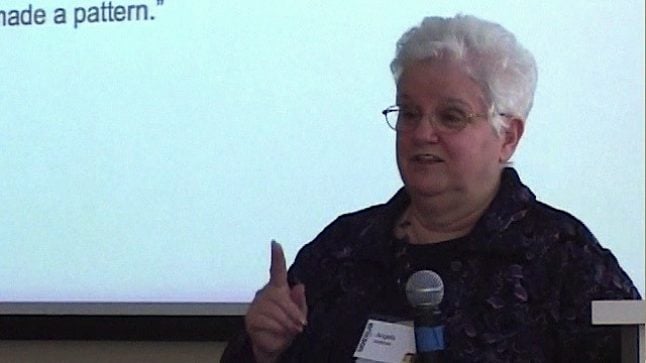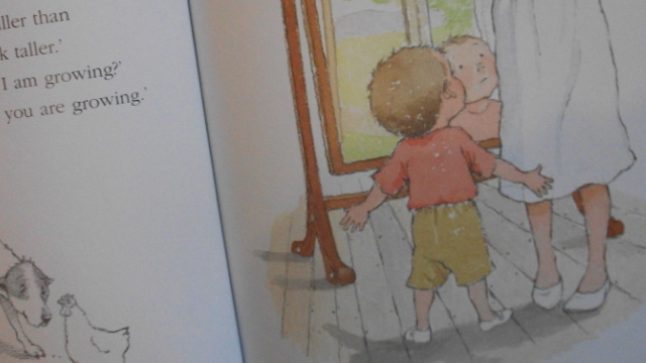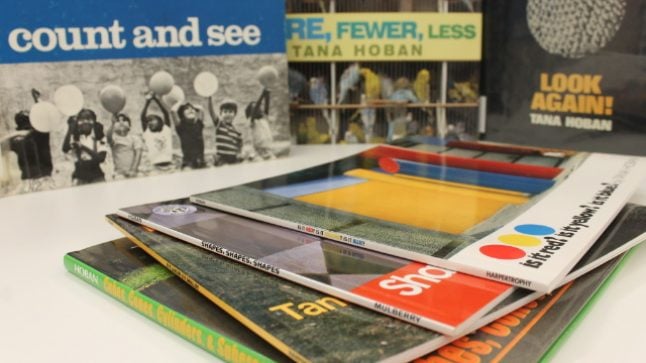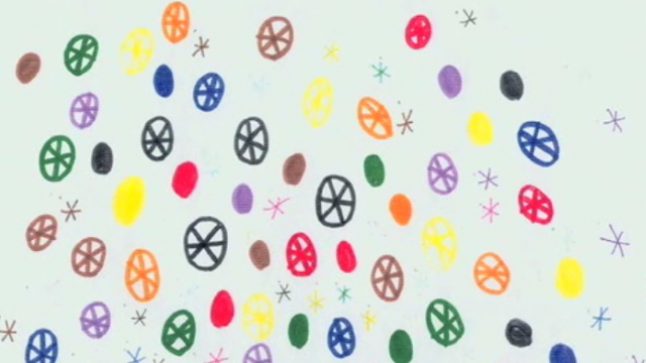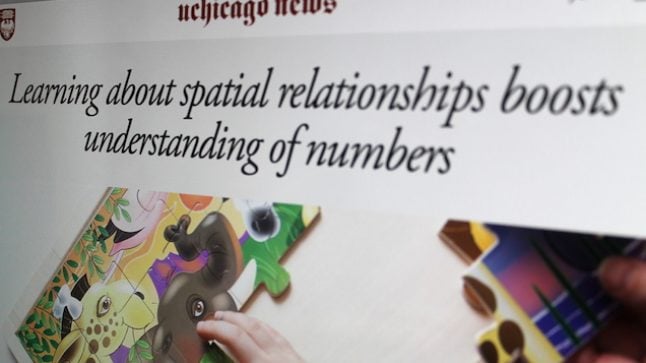Math for Toddlers
Series: About Early Math
For Kids, Learning Math Comes Naturally
August 26, 2014
This RadioLab story asks whether one can live without using math. As babies and kids learning math and counting, do we understand complex concepts more than we think? Experts point out that babies seem to have the ability to do some math, namely logarithmic counting: the ability to discern between "one," "some" and "many."
- Topic: Number Sense, Counting
- Age/Grade Level: Infants, Toddlers, Pre-K, Kindergarten
Series: Hear from the Experts September 17, 2013
Math On-the-Go with Angela Giglio Andrews
Angela Giglio Andrews shares an anecdote in which an order of french fries shared between a mother and her child led to questions involving measurement and other rich mathematical concepts.
- Topic: Measurement
- Age/Grade Level: Adult Learners, Infants, Toddlers, Pre-K, Kindergarten, 1st Grade, 2nd Grade, 3rd Grade
- Tags Big and Small, Angela Giglio Andrews
Series: Book Ideas April 16, 2013
Concept of “Getting Bigger” in The Growing Story and Three Feet Small
The Growing Story and Three Feet Small are two wonderful picture books that address a “math all around us" concept: growing taller.
- Topic: Measurement
- Age/Grade Level: Infants, Toddlers, Pre-K, Kindergarten
- Tags Animals, Big and Small, Books, Michael Rosen, Helen Oxenbury, The Growing Story, Ruth Krauss, Three Feet Small, Valeri Gorbachev
Series: Book Ideas February 27, 2013
Using Photobooks for Data Analysis
Tana Hoban and Ann Morris are both gifted children’s book authors who combine minimal text with wonderful photos that beg to be pored over again and again. Many of them are organized around ideas that…
- Topic: Shape
- Age/Grade Level: Infants, Toddlers, Pre-K, Kindergarten
- Tags Shoes, Bread Bread Bread, Shoes Shoes Shoes, Cubes Cones Cylinders & Spheres, Books, Tana Hoban, Ann Morris, Shapes Shapes Shapes
Series: Hear from the Experts February 20, 2013
Joanne Mulligan on Early Conceptions of Patterns
Joanne Mulligan shows a young student's emerging understanding of the concept of "pattern."
- Topic: Pattern
- Age/Grade Level: Adult Learners, Infants, Toddlers, Pre-K, Kindergarten
- Tags Joanne Mulligan
Series: Hear from the Experts February 13, 2013
Spatial Reasoning Connected to Other Math Areas
Children who have strong spatial reasoning abilities also have an advantage when it comes to learning the number line and solving math problems, researchers at the University of Chicago say. For more information about this…
- Topic: Spatial Relationships, Shape
- Age/Grade Level: Infants, Toddlers, Pre-K, Kindergarten
Do the math.
Free videos.
Free newsletter packed with ideas.
Free professional learning modules.

